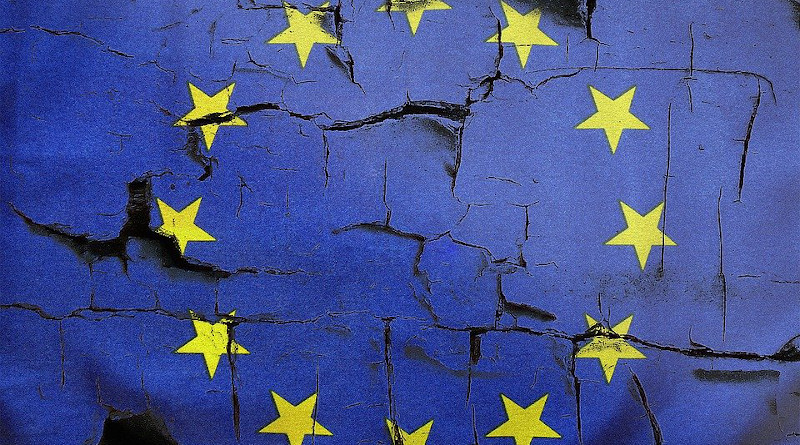Italy, Slovakia Call To Rethink CAP In Light Of Ukraine War
By EurActiv
By Gerardo Fortuna, Marián Koreň and Natasha Foote
(EurActiv) — Slovakia and Italy have called for adjusting the Common Agricultural Policy (CAP), including a policy postponement and a reconsideration of the EU’s green ambitions, amid fears of food insecurity caused by the war in Ukraine.
For its part, the Slovakian agricultural ministry (MPRV) told EURACTIV Slovakia that it believes it will be “necessary to reconsider and partially correct” the objectives of the EU’s flagship food policy, the Farm to Fork (F2F) strategy, and the Biodiversity Strategy given the ongoing war between Russia and Ukraine and the “apparent impact of severely limited agri-food trade (mainly imports) on EU agriculture”.
“The most important thing is to ensure food security,” a spokesperson for the ministry stressed.
In doing so, the Slovakian agriculture ministry (MPRV) adds its voice to a growing list of those calling on the European Commission to make changes to the EU’s flagship food policy, the Farm to Fork (F2F) strategy, together with the Biodiversity Strategy.
Although there were initial signs that the Commission may consider this an option, this has since been firmly rejected by the EU executive.
However, while the Commission remains unyielding on its green ambitions, Slovakia still has one card left up its sleeve; to adjust its Common Agricultural Policy (CAP) national strategic plan accordingly.
National strategic plans (NSPs) are one of the main novelties of the reformed Common Agricultural Policy (CAP), the EU’s farming subsidy programme, which will run from 2023-2027.
And this seems to be an option that is already on the table, according to the MPRV.
“Slovakia will join the joint procedure and will apply the necessary adjustments in its intentions,” the ministry said when asked about altering its CAP plan.
The changes could concern, for example, “the addition of interventions, which would also include activities mitigating the impacts of the current situation and possible compensation tools for Slovak primary producers and processors,” the ministry explained.
However, it is not clear whether Slovakia may use the opportunity to weaken its environmental and climate ambitions, which is set out in the subsidy plan.
Italy goes radical
Meanwhile, Italy has gone a step further and is currently considering the possibility of ‘re-directing’ the new CAP accordingly to support a strategic agricultural production and respond to food security concerns.
In a hearing at the national Parliament, Italy’s agriculture minister Stefano Patuanelli said he favours postponing the entry into force of the measures recently introduced by the CAP aimed at limiting agriculture production.
“It is not a question of changing certain decisions taken in the CAP, which are sacrosanct, but of suspending them,” he explained on Sunday (13 March) during an Italian radio programme.
The government also wants to increase the percentage of coupled payments for the strategic productions for which the EU is not self-sufficient, such as vegetable proteins and cereals.
Italy has outlined a decidedly radical approach as, according to Patuanelli, it is necessary to allow set-aside areas and all pastures to be used for productive purposes, even if they are partially occupied by spontaneous shrub vegetation.
To increase agri-food productivity, the government is also examining the possibility of removing the legal constraint on increasing irrigated areas and introducing a sort of new state subsidy for all agricultural land to cushion the increase in production costs.
For this reason, Patuanelli calls upon the EU to activate an extraordinary aid scheme along the lines of the COVID emergency to authorise State aid in derogation.
A similar loosening of the EU’s state aid for farmers was put in place during the pandemic to help the sectors not covered by the support measures set up in the Common Market Organisation regulation, which constitutes the safety-net for farmers in case of market crises, countering, for instance, collapsing prices.
Changing the rule of the game
For its part, the Commission has previously warned against such a move, saying it is “not wise” to radically change CAP plans and “stop the process following its normal procedure”.
“You don’t change the rule of the game in the middle of the game,” a Commission official told reporters on the sidelines of a meeting of the European Parliament’s agriculture committee on Wednesday (2 February).
He added that the Commission is counting on having this process completed to ensure there is no delay in the implementation of the CAP reform.
However, he pointed out there is space for some superficial changes and “fine-tuning”, thanks to the possibility of annual amendments, a feature added to ensure some flexibility in the plans over the next seven years.
“It’s always possible to change elements of the plan with annual amendments next year, but not core elements of the plan,” the official concluded.

